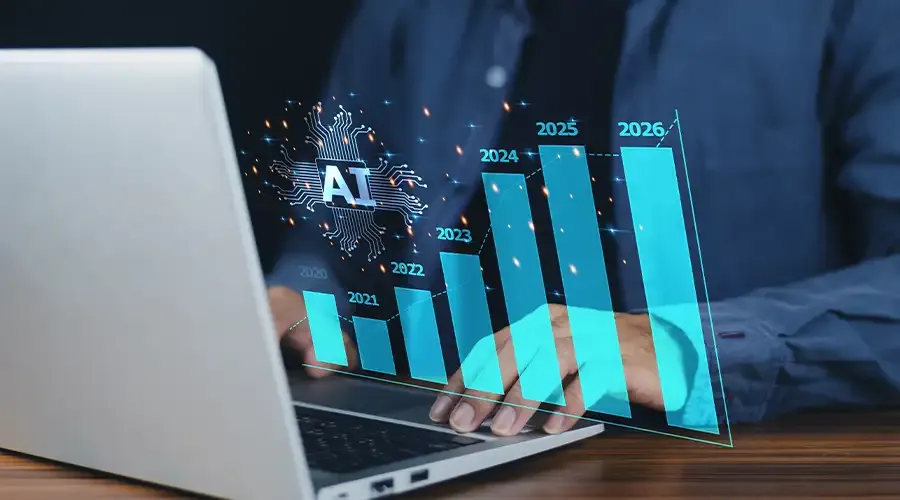This article examines how artificial intelligence (AI) is transforming corporate strategy by improving decision-making, work automation, and growth. Through predictive analytics and resource allocation optimization, AI helps businesses increase productivity and personalize the consumer experience.
Additionally, corporate planning, risk management, and process optimization all heavily rely on it. Companies that use AI enhance operations, obtain a competitive advantage, and open up new growth prospects in the dynamic market.
Businesses must change to be competitive in the fast-paced world of today, and artificial intelligence (AI) is leading the way in this shift. AI is being used by businesses more and more in their strategies to improve decision-making, expedite procedures, and open up new growth prospects.
How is AI transforming business?
AI is a helping tool, not a substitute for human intelligence and creativity. This technology may not be capable of performing practical tasks in the real world, but it can process and analyze large amounts of data much more quickly than the human brain. AI software helps us accelerate commercial decision-making by using data to identify potential outcomes and provide human users with synthesized options for action. Compared to traditional software, artificial intelligence provides a greater range of decision-making options.
AI for Business Growth:
By using AI, companies may better analyze consumer behavior, forecast market trends, and streamline operations, which results in quicker and more precise decision-making. Development is one of the main areas where AI has had a huge impact in business. Businesses may grow more quickly by using AI to automate processes, enhance customer support, and develop customized marketing plans.
Automation and Efficiency:
AI enables companies to automate routine processes like inventory control, data entry, and customer support. This minimizes human error in addition to saving time. Chatbots and virtual assistants are examples of AI solutions that can answer consumer queries 24/7, increasing customer happiness while cutting costs.
Predictive analytics:
AI analyzes past data to assist organizations in predicting future trends. AI technologies, for instance, are able to recognize new market trends and forecast seasonal demand, enabling businesses to modify their plans appropriately.
Risk management:
Businesses can evaluate and reduce risks with the use of AI tools. Artificial intelligence is capable of forecasting possible hazards like supply chain interruptions or market swings by examining past data and finding trends. The impact of these risks can then be reduced by businesses developing backup plans.
Product development and innovation:
Since AI can identify new trends and gaps in the market, it is vital for promoting innovation. AI provides a competitive advantage by developing new products or services that satisfy the unmet needs of consumers
Challenges and Considerations
Even with its advantages, AI automation has drawbacks. The possible loss of jobs, ethical issues, and data protection must all be carefully considered. Furthermore, to be impartial and reliable, AI models need constant observation and high-quality data.
The Future of AI in Business Strategies
The rapid advancement of AI technology and its increased accessibility for companies and end users worldwide are fueling the creation of new AI use cases. Regardless of where businesses are in their AI journey right now, there are still chances to start integrating AI into business processes and utilize AI to enhance decision-making, obtain a competitive edge, and enhance customer and employee experiences.
Businesses can realize their full potential and establish long-term success by integrating AI into business strategy and utilizing AI tools for a competitive edge. Business tactics incorporating AI are changing how organizations function, make choices, and expand.


Comments
Post a Comment